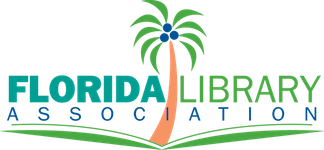- About
- Membership
- Support FLA
- Professional Development
- Advocacy
- Programs/Events
- 2025 FLA Annual Conference
- Calendar of Events
- DEIA Diversity Discussions
- Awards
- 2025 FLA Awards Information
- 2025 FLA Awards Information - Lifetime Achievement
- 2025 FLA Awards Information - Administrator of the Year
- 2025 FLA Awards Information - Librarian of the Year
- 2025 FLA Awards Information - Outstanding New Librarian
- 2025 FLA Awards Information - Outstanding Paraprofessional
- 2025 FLA Awards Information - Intellectual Freedom
- 2025 FLA Awards Information - Library of the Year
- 2025 FLA Awards Information - Innovative Program or Service
- 2025 FLA Awards Information - Communications Excellence
- 2025 FLA Awards Information - Libraries Mean Business
- 2025 FLA Awards Information - Outstanding Scholarly Contribution
- 2025 FLA Awards Information - Eileen Brunner Library Champion Award
- 2025 FLA Awards Information - Outstanding Citizen
- 2025 FLA Awards Information - Outstanding Business or Media Partner
- 2025 FLA Awards Information - Maria Chavez Hernandez ‘Libraries Change People’ Award
- 2025 FLA Awards Information - Bette Davis Miller Youth Services Award
- 2024 Award Winners
- Previous Winners
- Scholarships
- Webinars
- AI: The Future of Library Services is Here
- Succession Planning for Library Strategic Success
- Movin’ on Up: Using Bibliometrics and Altmetrics for Discoverability, Promotion and Tenure Webinar
- Research & Grant Proposal Writing 101 for Library Workers: A Basic Introduction
- Afternoon Conversation and Reading with Caridad Moro-Gronlier
- Exploring Civil Unity with Shola Richards Webinar
- 2024 Conference Keynote Speaker Webinar
- Library Conferences 101: Making the Most of Your Experience
- DEIA Webinar: Engaging with EDIA Topics
- Intellectual Freedom Webinar: Unintended Consequences
- Member Spotlight
- Connect
- Resources
Guidelines for Publishing in Florida Libraries JournalJournal Aim and ScopeThe mission of the Florida Libraries journal is to provide thought-provoking and inspiring articles to librarians throughout Florida to further our professional practice, share successes and challenges, and to provide Florida librarians with a regional venue to publish professionally. We welcome articles that describe, analyze, and enhance our understanding of our work as librarians. Articles about public, academic, and special collections librarianship are welcomed. We hope to be a meeting place where new ideas, challenges, and solutions can be examined and debated. We welcome all types of articles, including original research, case studies, literature reviews, reflective essays, conference reports, student scholarship, and book reviews. We welcome solo authors and collaboratively written papers. ContentFlorida Libraries publishes articles on topics of interest to Florida librarians and related to Florida libraries. Articles for the Fall issue are related to a designated theme and are refereed. Articles may be informal and do not need to be scholarly in nature, but should be informative and address professional issues of interest to the library community in the state. The style should be inviting and readable, and the content should be backed by responsible research and/or interviews. All of the author's name(s), title/position(s) and library/organization(s) should be the last page of your article. *FLA reserves the right to make any edits needed based on grammar, content and/or length. Deadline for SubmissionArticles for the Spring 2024 Issue: SUNDAY, MARCH 17, 2024 Publishing FeesThis is an open access journal, and there are no fees to publish. LicensingThe Florida Libraries journal allows the author to retain copyright in their articles. Articles are instead made available under a Creative Commons license (usually Attribution-Only or CC-BY) to allow others to freely access, copy, and use research, provided the author is correctly attributed. Repository PolicyThe Florida Libraries journal allows authors to deposit versions of their work in an institutional or other repository of their choice. StyleOur editorial team does not require many specifics, but we do strive for correctness and consistency. Articles should follow guidelines in The Chicago Manual of Style and be written in an active voice. Here are our main style uses:
Citations and ReferencesEndnote reference numbers should be placed at the end of the sentence. References in articles submitted to Florida Libraries should conform to the formats in The Chicago Manual of Style. Length1,000-2,500 words FormattingIf your article is longer than 500 words, consider adding subheads to break up the text and make your article easier to read. Use <h2> and/or <h3> headers. InterviewsUse bold for the questions and regular formatting for the answers. Inline FormattingWe allow italics and bolding, but please use these sparingly. HyperlinksWhen linking to an outside source within your article, choose the option to open the link in a new tab with the target="_blank" attribute. Document File formatWe accept articles in a .docx file format. ImagesAll images must be at least 72 dpi to retain their quality, if resizing is needed. • Credits: Please include image credits and license details when you submit your draft and images. *FLA reserves the right to not include a picture based on content, quality or lack of application to the article. Peer ReviewsIn academic publishing, the goal of peer review is to assess the quality of articles submitted for publication in a scholarly journal. Before an article is deemed appropriate to be published in a peer-reviewed journal, it must undergo the following process:
Because a peer-reviewed journal will not publish articles that fail to meet the standards established for a given discipline, peer-reviewed articles that are accepted for publication exemplify the best research practices in a field. (https://guides.lib.jjay.cuny.edu/c.php?g=288333&p=1922599) |
